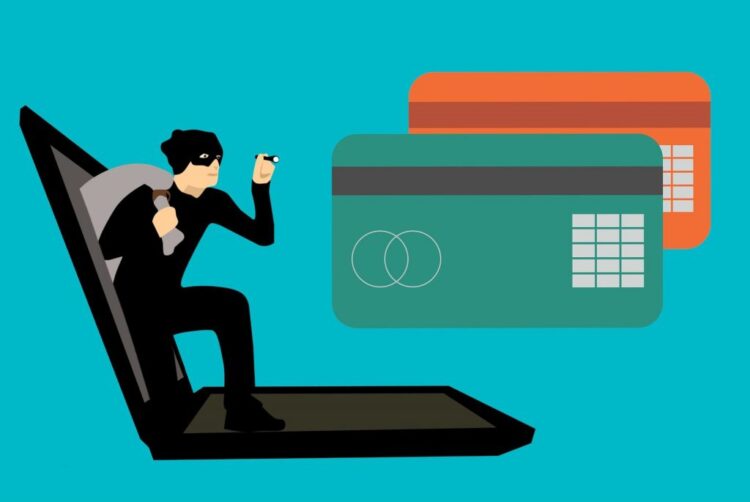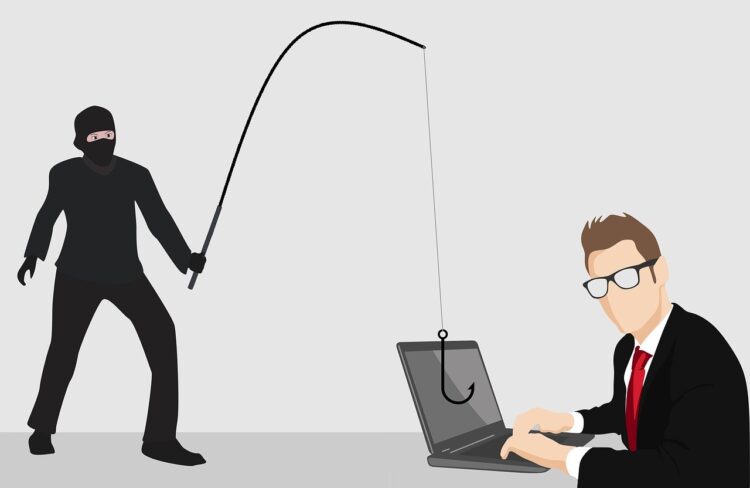Being a victim of an online scam doesn’t mean you have done something wrong, you lack understanding of the internet or that you were an easy target. In fact, many online scams are now very sophisticated and even the most IT literate person can be easily caught out.
Online scams have only increased during the current coronavirus pandemic, which can feel like one extra thing to be worried about. Sadly, criminals prey on people at vulnerable times. For instance, they may text a person’s phone inviting them for a COVID 19 vaccination, requesting them to click a link and then asking for money. This may all seem very legitimate at the time but ultimately they manage to gain money from you during the process by preying on your desire to be vaccinated and stay safe.

With this focus on vulnerability in mind, we have listed below some of the most aggressive current scams to look out for, and what to do if you spot one. However, it cannot be understated that the first line of defence is your own wit and experience. Even if something feels routine and ‘normal’ take the extra time to tune into your spider senses and be extra judgemental, especially if money is being discussed.
Antivirus software upgrades or downloads: You may be used to receiving emails that ask you to update your antivirus software. These can be really easy to identify because they contain a lot of spelling errors and grammatical problems that highlight the fraudulent nature of the email. This is one of the most obvious signs that it is a fake email. It also may contain a URL link within the email which you have to click – another red flag. If you are asked to click a link, it will likely take you through to a fake site (which could well look professional). Ultimately if the email asks you for your personal details or money, it should raise concerns. Recently anti-virus ‘alerts’ also seem to be catching people out. When a notification box comes up on your screen telling you it has identified a virus on your computer, this can feel worrying and it may force you to click the link. You should only pay attention to any antivirus software you have officially installed yourself – anything else is likely to be a scam. Norton says, “A real antivirus solution will take care of your issues in the background and while it may ask you to take an action, it’ll likely only notify you once the cyberthreat has been resolved.” On their website, Norton also talk about tech support scams which are also growing in popularity. These involve a tech support impersonator contacting you to tell you that your computer is infected, often without even seeing the device. If you do have a problem with your PC, it is best to contact the manufacturer directly.

Foam Jacking: Another scam doing the rounds at the moment is called form jacking – a new cyberthreat that steals your credit card information. This one doesn’t contact you directly as it can happen when a legitimate e-commerce website is hacked. This means that cybercriminals are able to redirect you to different URLs in the payment process that look very similar but steal your personal information without you knowing. It is very important therefore that you keep checking the URL at the top of the screen – does it still look genuine or is there a spelling error? Has it changed the name? It is very difficult to spot this kind of scam, which means that sadly a lot of people have been caught out.

Phishing over WhatsApp: This is where the criminal will impersonate a friend or colleague, someone that you trust, on a social Media platform or via WhatsApp. The person will start a conversation with you, to earn your trust, and then may well ask for personal information or some money to help them out of a difficult situation. They may suddenly request this and it could feel like it is out of the blue. They may start the conversation with something like, “Have you heard about Frank?” which is meant to divert your attention and get the conversation started. You can identify this kind of scam by judging whether the conversation seems legitimate or not in its phrasing and its tone. Does the person sound like themselves? Are they typing a lot of spelling errors or grammatical mistakes which do not appear to be like them? If they ask you for money or personal information, you should call the person directly to find out whether this is a legitimate request or not.

So, what do you do if you come across this kind of scam? Hopefully you’ve passed the first test and actually identified the dodgy situation and not shared any of your personal info or engaged with the fraudster. Secondly report it to the message delivery service themselves i.e. Facebook, Whatsapp or GMail. Next you’ll want to inform the brand (if any) that’s being used as the ‘mask’ for the fraudster. I.e. the brand or website the criminal is pretending to be from. Instant loan website Wonga (who have successfully dealt with people trying to steal their image for phishing emails in the past) urges customers to go further. By, for instance contacting your bank directly (not through a link in an email or sms message) to ensure that your accounts are secure. If you find that funds are missing, you must report this urgently to the bank but also to your local fraud help centre to help escalate awareness of the scam.

You’ll also want to be sure to check your passwords for your computer and other online services, as well as bank account logins. You might want to change passwords even if you don’t notice anything suspicious, as this will help to make it even more difficult for scammers in the future. Make sure you have a different password for different services, because if a scammer gets hold of one password, they could use it to unlock a large number of accounts and sites on your behalf!





























































